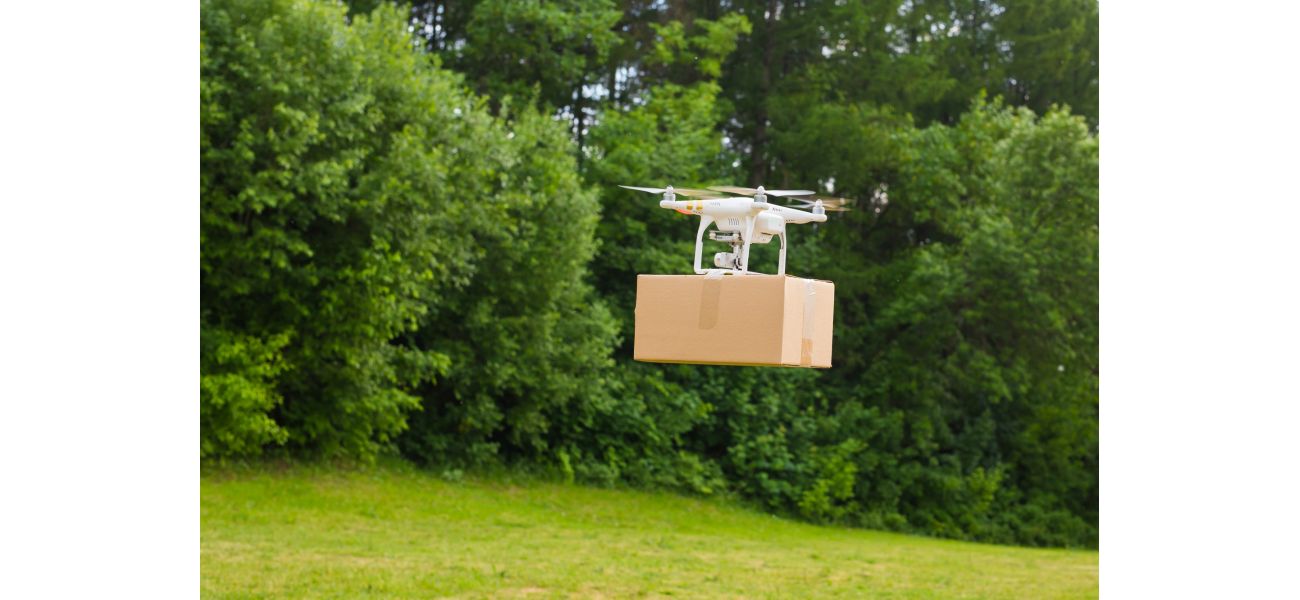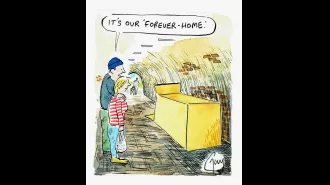London will use drones to transport blood during urgent situations as part of a new trial by the National Health Service.
Travel time reduced from 30 minutes to 2.
September 16th 2024.

In recent years, there have been numerous successful trials showcasing the safety and effectiveness of drones in delivering medical supplies. This is especially promising for cities like London, where traffic congestion can significantly delay the delivery of urgent blood samples from one hospital to another. In fact, the time it takes for a van or motorbike courier to travel between Guy's Hospital and St Thomas' Hospital is over half an hour, while drones can make the journey in just two minutes. In light of this, the NHS trust overseeing these hospitals has decided to launch a six-month trial this autumn, with the possibility of expanding the program in the future.
Initially, the focus of the trial will be on delivering blood samples from surgical patients who are at high risk of bleeding disorders. This is a crucial step in ensuring the best possible patient care, as well as promoting sustainability within the healthcare system. Professor Ian Abbs, chief executive at Guy's and St Thomas', stated, "The drone pilot combines two of our key priorities – providing the best possible patient care and improving sustainability." This innovative approach is something the trust is proud to be the first in London to trial.
If successful, this program could potentially pave the way for drones to be used for other types of deliveries and in other hospitals as well. The Civil Aviation Authority, which is regulating the trial, is working alongside healthcare logistics company Apian and drone delivery company Wing to ensure the safety and effectiveness of the program. In fact, this is not the first time that drones have been used for medical deliveries within the NHS. In one recent project by NHS Blood and Transplant, drones were successfully used to transport blood stocks between hospitals.
Sophie O'Sullivan, director of future of flight at the Civil Aviation Authority, praised the collaboration between Guy's and St Thomas', Apian, and Wing, saying, "Innovative trials like this...help demonstrate the many positive and safe ways that drones can be used for society." Similarly, Dr Hammad Jeilani, co-founder of Apian, emphasized the potential of drones to improve healthcare logistics and increase the productivity of clinicians. "An NHS drone delivery network in London...will provide on-demand, automated, and sustainable deliveries," he stated, "helping the NHS create more efficient models of working and our doctors and nurses to deliver the highest quality care for patients."
With the success of previous trials and the potential benefits for both patients and the environment, it is clear that drones have a significant role to play in the future of medical deliveries. The upcoming trial in London is just the beginning, and if all goes well, we can expect to see more advancements in this area in the near future. Truly, the sky's the limit when it comes to the potential of drones in healthcare.
Initially, the focus of the trial will be on delivering blood samples from surgical patients who are at high risk of bleeding disorders. This is a crucial step in ensuring the best possible patient care, as well as promoting sustainability within the healthcare system. Professor Ian Abbs, chief executive at Guy's and St Thomas', stated, "The drone pilot combines two of our key priorities – providing the best possible patient care and improving sustainability." This innovative approach is something the trust is proud to be the first in London to trial.
If successful, this program could potentially pave the way for drones to be used for other types of deliveries and in other hospitals as well. The Civil Aviation Authority, which is regulating the trial, is working alongside healthcare logistics company Apian and drone delivery company Wing to ensure the safety and effectiveness of the program. In fact, this is not the first time that drones have been used for medical deliveries within the NHS. In one recent project by NHS Blood and Transplant, drones were successfully used to transport blood stocks between hospitals.
Sophie O'Sullivan, director of future of flight at the Civil Aviation Authority, praised the collaboration between Guy's and St Thomas', Apian, and Wing, saying, "Innovative trials like this...help demonstrate the many positive and safe ways that drones can be used for society." Similarly, Dr Hammad Jeilani, co-founder of Apian, emphasized the potential of drones to improve healthcare logistics and increase the productivity of clinicians. "An NHS drone delivery network in London...will provide on-demand, automated, and sustainable deliveries," he stated, "helping the NHS create more efficient models of working and our doctors and nurses to deliver the highest quality care for patients."
With the success of previous trials and the potential benefits for both patients and the environment, it is clear that drones have a significant role to play in the future of medical deliveries. The upcoming trial in London is just the beginning, and if all goes well, we can expect to see more advancements in this area in the near future. Truly, the sky's the limit when it comes to the potential of drones in healthcare.
[This article has been trending online recently and has been generated with AI. Your feed is customized.]
[Generative AI is experimental.]
0
0
Submit Comment





